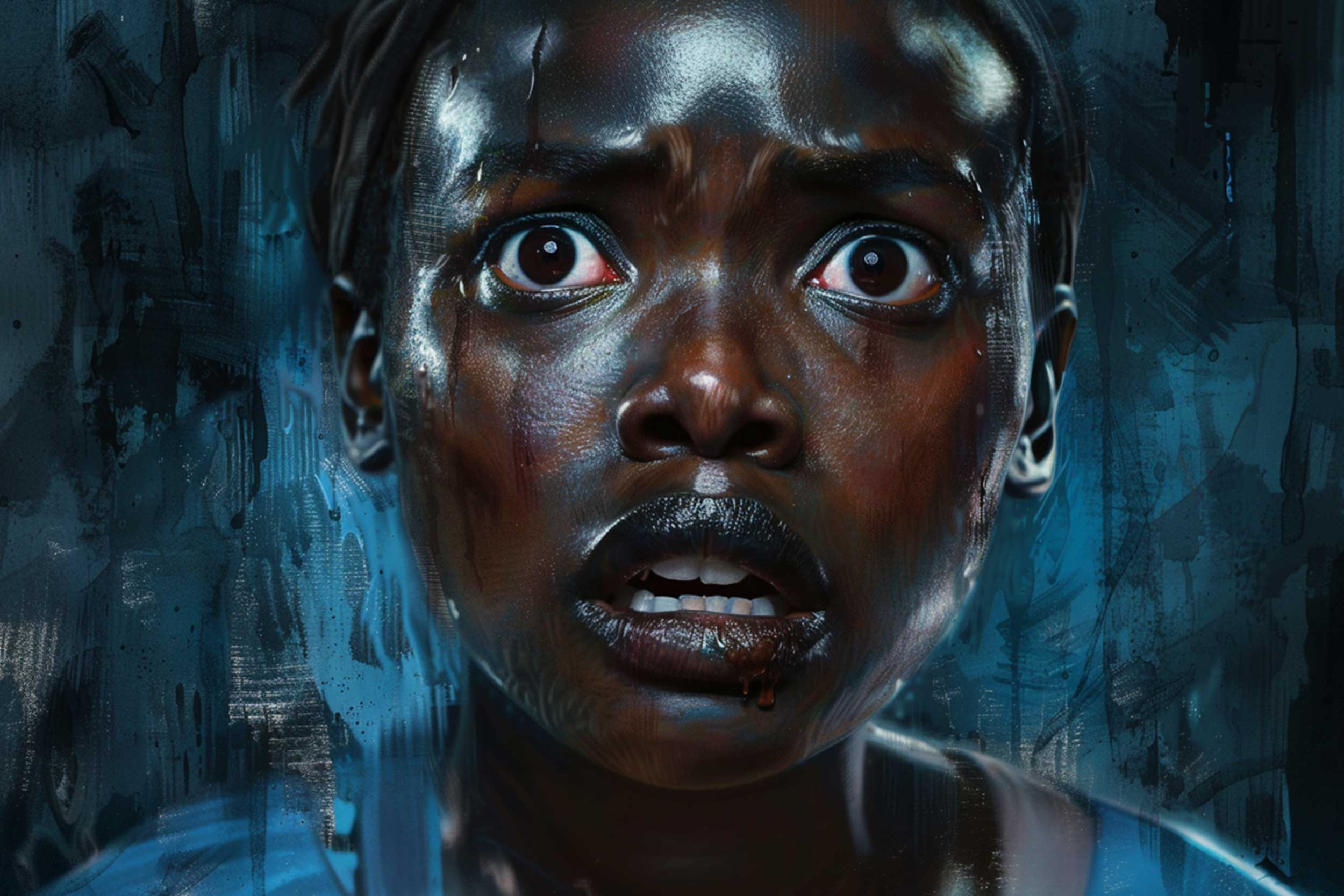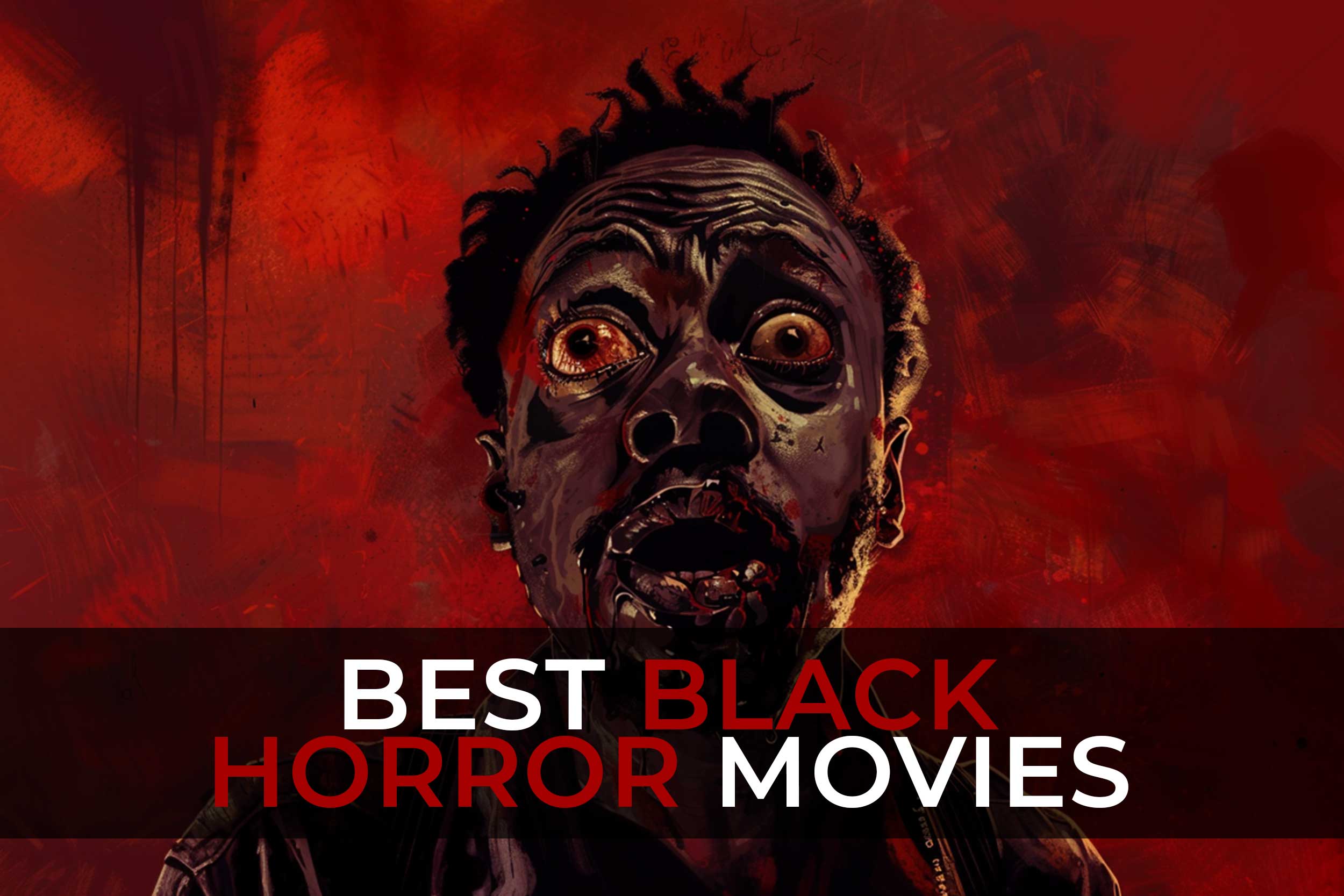Disclosure: This post may contain affiliate links, which means I’ll receive a commission if you decide to make a purchase through my link, at no extra cost to you. Please read the full disclosure for more info.
Welcome to the dark and thrilling world of black horror movies, where fear intertwines with the black experience to craft stories that not only chill to the bone but also reflect societal issues through the unique lens of horror. As a genre that’s historically been as diverse as the monsters that roam its narratives, horror has seen a significant evolution, especially with the rise of black voices both in front of and behind the camera. The journey of black horror movies from the fringes to the forefront of cinema is a tale of resilience, creativity, and the relentless pursuit to tell stories that resonate with black audiences and beyond.
- 1968
- 1h 36m
- 7,8/10
- 2019
- 1h 56m
- 6,8/10
- 1974
- 1h 31m
- 5,8/10
- 2021
- 1h 31m
- 5,9/10
- 1972
- 1h 33m
- 5,7/10
- 1995
- 1h 38m
- 6,5/10
- 1973
- 1h 52m
- 6,2/10
- 2020
- 1h 40m
- 6,2/10
- 2020
- 1h 33m
- 6,5/10
Table of Contents
Key Takeaways:
-
Evolution and Impact of Black Horror:
The post highlights the journey of black horror movies from marginalized representations to significant cultural narratives, emphasizing the genre's evolution with pioneers like George A. Romero and films such as "Night of the Living Dead." It showcases how black horror has moved from peripheral roles to central narratives that challenge societal norms and racial stereotypes. -
Significant Contributions of Black Directors:
Directors like Jordan Peele and Nia DaCosta have redefined black horror with films such as "Get Out," "Us," and the modern interpretation of "Candyman." Their work is noted for infusing the horror genre with fresh perspectives, clever social commentary, and narratives deeply rooted in the black experience. -
Themes of Racial Tension, Identity, and Societal Issues:
The post underscores how black horror movies incorporate deep themes and messages, using horror as a lens to explore racial tension, identity, and the black experience. Films like "Get Out" and "Blacula" are mentioned as examples of how horror can engage with and illuminate issues of race, privilege, and historical trauma. -
Diversity and Versatility within Black Horror:
The variety of films discussed, from supernatural tales to socio-political narratives, demonstrates the diversity within black horror cinema. Movies like "Sugar Hill," "Tales from the Hood," and "His House" highlight the genre's ability to tackle a wide range of topics, including revenge, police brutality, and the immigrant experience, showcasing the genre's versatility. -
Cultural and Societal Reflections:
Black horror is presented as a mirror to society, reflecting fears, prejudices, and societal issues through a unique lens. The genre serves not only as entertainment but also as a form of catharsis and empowerment for audiences and offers a platform for reflection and discussion on complex societal issues. -
Future of Black Horror:
The post concludes with optimism about the future of black horror, emphasizing its continued evolution and the potential for upcoming filmmakers to push boundaries further. It suggests that black horror will keep offering compelling stories that resonate with audiences worldwide, continuing its trajectory of growth and influence in the cinema landscape.
The Evolution of Black Horror
The roots of black horror stretch back much further than many realize, with early representations often relegating black characters to peripheral or stereotypical roles. However, the game changed with George A. Romero’s “Night of the Living Dead” (1968). Duane Jones starred as Ben was one of the first black actors to lead a horror movie and set a precedent for future films. This pivotal moment signaled the start of a new era in horror, where black characters could be more than just side notes; they could drive the narrative.
The history of black horror is a rich tapestry that includes more than just films; it’s a movement. “Horror Noire,” a 2019 documentary, dives deep into this history, highlighting the genre’s evolution and the significant contributions of pioneers like Bill Gunn, whose “Ganja & Hess” (1973) pushed the boundaries of horror cinema with its complex portrayal of addiction, love, and African spirituality. These films and documentaries underscore the cultural impact of black horror, showcasing how the genre has served as a mirror to society’s fears and prejudices, all while offering a form of catharsis and empowerment for its audiences.

Trailblazers in Black Horror
Jordan Peele and His Impact On Black Horror
Nia DaCosta and His Impact On Black Horror
The impact of these directors on the horror genre cannot be overstated. By centering black stories and leveraging horror’s visceral impact, they have opened the door for more nuanced and varied representations of black people in horror cinema. They paved the way for future generations of black horror filmmakers.
Other Posts You May Like:
The Best Black Horror Movies
By continuing our exploration into the depths of black horror cinema, we delve into some of the most iconic films that have not only scared audiences but have also made significant contributions to the genre and cultural discourse. These movies, ranging from cult classics to modern masterpieces, showcase the versatility and depth of black horror.
Night of the Living Dead (1968)
Us (2019)
Sugar Hill (1974)
Candyman (2021)
Other Posts You May Like:
Blacula (1972)
Tales from the Hood (1995)
Ganja & Hess (1973)
Black Box (2020)
His House (2020)
These films highlight the diversity within black horror, from supernatural tales and psychological thrillers to socio-political narratives, each bringing a unique perspective to the horror genre.
Other Posts You May Like:
Key Themes in Black Horror
Black horror movies often go beyond mere entertainment, embedding deep themes and messages within their narratives. These films use horror as a vehicle to explore complex issues such as racial tension, identity, and the black experience in a way that’s both engaging and enlightening.
Horror and the Black Experience
Films like “Get Out” and “Us” have masterfully used horror to discuss the black experience in America. These movies, directed by Jordan Peele, have sparked conversations about race, privilege, and the societal fears that haunt the black community, proving that horror can be a powerful tool for reflection and discussion.
Vampire Myths and Black Horror
The vampire myth has been reimagined in films like “Blacula,” where the traditional European vampire narrative is infused with African culture and history. William Marshall’s portrayal of an African prince who was turned into a vampire by Dracula himself offers a poignant commentary on race, identity, and the horrors of the slave trade, showcasing how black horror can reclaim and redefine genre tropes.
Psychological Horror and Identity
Films such as “Black Box” and “Us” delve into the psychological aspects of horror, using the genre to explore themes of identity, memory, and self-discovery. These stories often feature characters grappling with their pasts and inner demons, illustrating how horror can illuminate the complexities of the human mind and the terror of losing one’s sense of self.
Conclusion
In conclusion, black horror movies offer a rich and varied tapestry of stories that challenge, entertain, and provoke our thoughts. The contributions of black directors, actors, and storytellers have not only enriched the horror genre but have also provided a platform for exploring the nuances of the black experience through cinema. As we look to the future, it’s clear that black horror will continue to evolve, pushing boundaries and telling stories that resonate with audiences around the world.
FAQ: Common Questions and Answers
What are some of the best black horror movies ever released?
Some of the best black horror movies that have left a significant mark on the genre include Jordan Peele’s “Get Out” (2017) and “Us” (2019), George A. Romero’s “Night of the Living Dead” (1968), and Nia DaCosta’s “Candyman” (2021). “Blacula” (1972) is a cornerstone of the Blaxploitation era.
What are some lesser-known black horror movies worth watching?
Lesser-known but equally compelling black horror movies include “Ganja & Hess” (1973), “Tales from the Hood” (1995), and “Sugar Hill” (1974).
What are some themes explored in black horror movies?
Black horror movies often explore themes that go beyond the conventional horror tropes, delving into racial tension, identity, systemic racism, and the black experience. They use horror to discuss societal fears, privilege, and historical traumas. Psychological horror is another prevalent theme, with movies like “Us” and “Black Box” examining the complexities of identity and the human psyche.
Some of the best black horror movies that have left a significant mark on the genre include Jordan Peele’s “Get Out” (2017) and “Us” (2019), George A. Romero’s “Night of the Living Dead” (1968), and Nia DaCosta’s “Candyman” (2021). “Blacula” (1972) is a cornerstone of the Blaxploitation era.
What are some lesser-known black horror movies worth watching?
Lesser-known but equally compelling black horror movies include “Ganja & Hess” (1973), “Tales from the Hood” (1995), and “Sugar Hill” (1974).
What are some themes explored in black horror movies?
Black horror movies often explore themes that go beyond the conventional horror tropes, delving into racial tension, identity, systemic racism, and the black experience. They use horror to discuss societal fears, privilege, and historical traumas. Psychological horror is another prevalent theme, with movies like “Us” and “Black Box” examining the complexities of identity and the human psyche.
Lesser-known but equally compelling black horror movies include “Ganja & Hess” (1973), “Tales from the Hood” (1995), and “Sugar Hill” (1974).
What are some themes explored in black horror movies?
Black horror movies often explore themes that go beyond the conventional horror tropes, delving into racial tension, identity, systemic racism, and the black experience. They use horror to discuss societal fears, privilege, and historical traumas. Psychological horror is another prevalent theme, with movies like “Us” and “Black Box” examining the complexities of identity and the human psyche.
Black horror movies often explore themes that go beyond the conventional horror tropes, delving into racial tension, identity, systemic racism, and the black experience. They use horror to discuss societal fears, privilege, and historical traumas. Psychological horror is another prevalent theme, with movies like “Us” and “Black Box” examining the complexities of identity and the human psyche.
Subscribe To Our Newsletter
Subscribe to our newsletter to never miss a new post and get notified when a new horror podcast episode is released.
Subscribe To Our Newsletter
Subscribe to our newsletter to never miss a new post and get notified when a new horror podcast episode is released.
- Tomaz
- November 23, 2024
- Tomaz
- November 16, 2024
Latest Episodes
Fearmort Podcast
Fearmort Podcast is a horror podcast based on fictional stories placed in a small fictionalized town in the United Kingdom, called Moorton. Stories are full of events, unpredictable characters, and twists that will chill you to the core.
Support Us On Patreon
Support our horror podcast and enjoy ad-free, without interruptions horror stories two days before public release on all platforms and get ability to download all episodes in mp3 format.
Podcast
This website is a participant in the Amazon Services LLC Associates Program, an affiliate advertising program designed to provide a means for sites to earn advertising fees by advertising and linking to amazon.com.
Functional Always active
Preferences
Statistics
Marketing
Functional Always active
Preferences
Statistics
Marketing
Support our horror podcast and enjoy ad-free, without interruptions horror stories two days before public release on all platforms and get ability to download all episodes in mp3 format.
Send us your story to be professionally narrated and featured on our YouTube Channel.
Support our horror podcast and enjoy ad-free, without interruptions horror stories two days before public release on all platforms and get ability to download all episodes in mp3 format.
LISTEN TO OUR HORROR PODCAST






